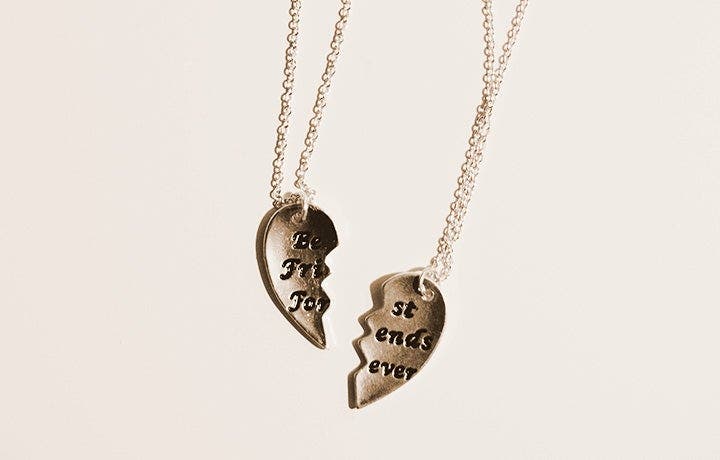Take a Friendship Break (Without Breaking Up for Good)


Even the best of friends can get on each other’s nerves—but that doesn’t mean you should call it quits at the first (or even second or third) sign of trouble.
The truth is, people need to be in close relationships with others. When we feel satisfied with our friendships, we also feel more satisfied with our lives overall, according to a 2015 study in the journal PLoS ONE. But if a friendship starts to feel one-sided—for example, your friend is doing all the complaining, while you’re doing all the listening—you may find yourself feeling more resentful than supportive.
“Relationships need to be satisfying to both parties,” says Irene S. Levine, Ph.D., a psychologist, professor of psychiatry at the NYU School of Medicine in New York City, and author of Best Friends Forever: Surviving a Breakup with Your Best Friend. “If you’re beginning to feel drained and unhappy about a friendship, it might be time to reassess your relationship. Taking a break can give you time to breathe and see the situation more objectively.”
Why friendships wane
Not all of our friendships will last forever; in fact, some won’t even outlive yoga class. And that’s okay. “A lot of our friendships are built on practicality,” says Suzanne Degges-White, Ph.D., chair and professor in the Department of Counseling, Adult, and Higher Education at Northern Illinois University, DeKalb, IL. “Many of them are friends of convenience, like workmates or people we carpool with.”
But as we grow and change, our needs change, too. For example, if you’ve recently started a weight loss program, you may not feel comfortable eating out as much as you once did. Or, says Degges-White, you may prefer to spend your evenings at the gym rather than at a bar. In both cases, you need your friends to be understanding of your new goals.
“When we make personal changes in order to better our lives, we might have to back away from a friend who doesn’t honor our behavior,” says Degges-White. When friendships are no longer convenient or supportive, they can make you reassess them.
RELATED: The Connection Between Friends and Weight
How to tell whether you need a break
“The signs [that you need to take a break] are usually subtle,” says Levine. You might have a hard time scheduling get-togethers because neither of you see the relationship as a priority. And when you do meet up, she says, you may feel bored or run out of things to talk about.
“Ask yourself if you feel worse or better after being with your friend,” says Degges-White. “If you dread meeting up with her or find reasons to ignore her texts or calls, that’s a pretty good sign that the relationship is at a standstill.”
5 rules to follow if you want to take a friendship break
Here’s how to take a step back from your friendship, without breaking the bond altogether.
-
Think about your reasons for calling a time out. Maybe neither of you has enough energy to support each other, or maybe you’re having difficulties at home that are taking up most of your free time, says Levine. Think about what’s making you less accessible to your friend, then decide how much information or time you want to give her, based on your assessment.
-
Be up front about your intentions. It’s okay to cut back on the amount of time that you spend with your friend — just be honest about it. “You can tell her that you need more time to yourself or need to spend time focusing on your work or family,” says Levine. “If you still value the friendship and don’t want it to end, you need to tell that to your friend so that she doesn’t think the break is permanent.”
-
Use “I” statements. Now is not the time to tell your friend that her constant complaining is dragging you down. Instead, talk about your own needs, says Degges-White. “You might say, ‘I really need to look after myself, and I feel like I can’t be a good friend for you right now.’”
-
Don’t confront your friend if you’re angry. If your emotions are running high, you’re more likely to say something that will hurt her feelings, says Levine. (Plus, you could also say something that will make your mutual friends feel uncomfortable.) Instead of jumping into a long, emotional discussion, try writing down a few things that you want to say. Sticking calmly to these points will allow for options in the future.
“After you get some space, you may realize that you want to rekindle the friendship,” says Levine. “If that does occur and you’ve hurt the person, it’s going to be hard to take those words back.”
- Make plans to meet up in the future. If you intend to keep the friendship, schedule a coffee or movie date a month or two in advance. “Just don’t disappear without a trace,” says Degges-White.
RELATED: How to Make Friends as an Adult
